Article
The Long Road to Nigeria’s Industrialisation; The Need for Critical Interrogations
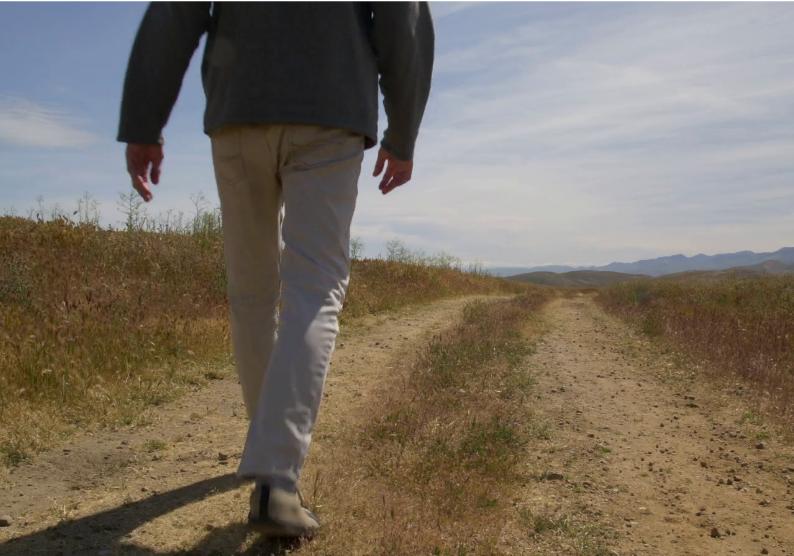
The state, the government and its bureaucracy are subjects of diverse discourse in terms of ideological underpinning, policy formations and implementation, politics and the competition between equally diverse status groups for control and domination of political power and access to the commanding height of the national economy. adsbygoogle || []).push({}); adsbygoogle || []).push({});
Industrialization is a manifest concept by the bourgeoisies’ capitalist emergent status groups in Europe at the beginning of the industrial revolution. There existed an intrinsic nexus between; capitalism, industrialization and technological innovation. In Africa, the reverse has been the case as the political and economic elite’ comprador bourgeoisies’ lack the discipline of Calvinist Ethics and visionary leadership required to translate concepts into concrete realities for development.
It is against this backdrop that we can properly understand the causes of underdevelopment on the continent of Africa and its concomitant highest proportion of poverty especially in Nigeria the purported giant of Africa. All the past and present superlative development plans since independence are mare theoretical exercise in futility as the state actors and bureaucrats high up in various MDGs are adept at killing or sabotaging the plans before it grows into fruition.
It is at this point of departure that we can begin to interrogate the Why and How the industrial and agricultural revolution envisaged in successive national plans fizzled out into thin air. A recent seminar/ workshop organized by National Automotive Design and Development Council speaks volume to another effort in futility towards industrialization just like many before it. The theme of the seminar workshop focuses on the impact of automotive industry on the economic growth of Nigeria; lessons from China, India and Southeast Asia.
Do the countries on the the African continent and their political elite ever learn lessons? I am compelled to ask this question begging for answer since ever. We are always learning and even very good at it , but hardly put the knowledge into positive use in our countries for change and transformation. We are just too good at the blame game as we trade blames from one successive government to another. As we upgrade from the blame game to outright killing of one another in the name of ethno religious sentiments cloak in politics of identity.
The curses placed on Africans that blind the people from the path that leads to knowledge economy and the prudent management of its resource economy had ever trapped the continent in development deficit. As I continue in search of answers to my questions through critical interrogations, I ask once again: with respect to the focus of the seminar refers to above and other development conversations ever on the front burner of national discourse, where is Africa and her nations among the league of industrialized nations? Why is it that individual Africans and Nigerians specifically in the Diaspora excel in terms of global competence and achievements, but as a people, nations and continent we are backward, underdeveloped and today the world headquarters of global poverty, sickness and miseries?
The reference to Nigeria being cursed as popularly believed by the common man seems more of superstitious belief as there seems no empirical reasons to explain why citizens of a vastly resource rich country like Nigeria should be wallowing in poverty due to low GDP, unemployment, poverty and deplorable infrastructure deficits. The reasons mostly and often given by critics and public affairs analysts are replete with wide scale corruption in government’s MDGs and among state actors. Corruption in public offices percolates into private offices through bribery in time of contract awards and procurements. Corruption was the keyword in the coup speech that sacked the First republic government in Nigeria. It was a mere 10% back then compare to its geometric leap and bound through successive governments in Nigeria.
Each time the military junta used this keyword to justify why The Saviour on the Horse back must be given legitimacy by the civilians they extent the frontiers of corruption to an all time high proportion. This is evidence in the profligacy of public monies on White Elephant such as the many abandoned steel mills and complex, refineries, petro chemical industries, automobile assemblies and many other basic requisites manufacturing industries that were a initial shot at industrialization. Those in authority recklessly abandoned all these across the country without remorse over the time. Return to civil rule which allowed civilians to practice democracy neither offered any panacea nor assurance of correction of the junta misadventure into politics.
Rather, when Nigeria returned to democracy, public corporations and industries were hurriedly privatized and sold to companies without technical competence but had politician agents on ground to vouch for it. This shenanigan alliance made a bad situation worse. The realities on ground today are due to the action and inaction of past state actors. Nigerians blaze the trail across the world but back home, there are disunited by primordial sentiments, mutual suspicions with strong ethno religious underpinnings and corruption. Today, the mistakes of the past continues to hunt the present as the government and state actors keep doing things in the same old ways and expecting change.
Nigeria and her citizens are global laughing stocks around the world in recent times and until now as the live witness to the dehumanizing condition of Nigerians on a desperate journey across the Mediterranean and the desert. A survey conducted by the US -based research firm Pew Research Centre revealed that ; “ in Nigeria, Africa most populated nation, nearly half ( 45% ) of adults say they plan to move to another country within five years, by far the highest share among twelve countries surveyed across four countries in Africa. Those who dare to stay back amidst equally dehumanizing high level of killings, crime and terrorism are trapped in poverty while politicians and state actors subject them to their drama of the absurd. Agitations are rife before and after what happened in February 2019 called elections that we still hear echoes of gunshots and the sorrowful cries of the bereaved. The one Nigeria slogan to some of these people remains the biggest clog in the wheel of progress leading to industrialization.
Many others within the camp of the discontents advocate restructuring even if the entity must remain as one after more than a century, that tinkering with the present political structure would not be a bad idea for a revolutionary change. They strongly believed that it is time for a clear departure from the norm to break even with the past. If we cast our minds back to the recent electioneering campaigns in the build up to the general elections, the upstart political parties and its candidate outperformed the mainstream old parties and its equally tired and analog candidates
. To get out of this neck of dead wood, the Not Too Young to Run who are emasculated or compromised should used the next three years to re strategize for 2023 as the world is already leaving Nigerian youths behind in terms of national leadership positions in the 21st century. If the youth of every nation provides the active productive energy and action to preserve it, then the onus is on them to rescue Nigeria from the looming disintegration, anarchy and war as Nigerians Live Matter even when the government fails in its own part of the Social Contract.
My trajectory and position in this piece echoes United States Counsel General’s admonition to Nigerian youths recently at the three day Young African Leaders Initiative Techcamp Reconnect Workshop in Lagos state. He told the young Nigerians that the real solution to Africa’s problems could best be developed by Africans. He further noted that, finding sustainable solutions to these identified problems have been hampered by corruption, absence or misallocation of resources and gross mismanagement.
Hence, the onus incumbent on the youths is to think out of the box on how best to expand their space in the political arena. A herculean task it seems, but every generation must brace up to the challenges of its time. The challenges before the Nigerian youths today is enormous, but the first and most important step is to articulate altruistic agenda and present to the people holistic pragmatic alternative solutions to address the pressing issues facing the Nigerian state and the government.
Author Profile
-
Comrade Alex Ameh Ogbu is an Abuja based Media Practitioner and a prolific writer that writes mostly from Akatekwe Kingdom.
He is also the National Convenor Generation for Change Africa Initiative GFCAI. He can be reached via: onwaters2011@gmail.com
Latest entries
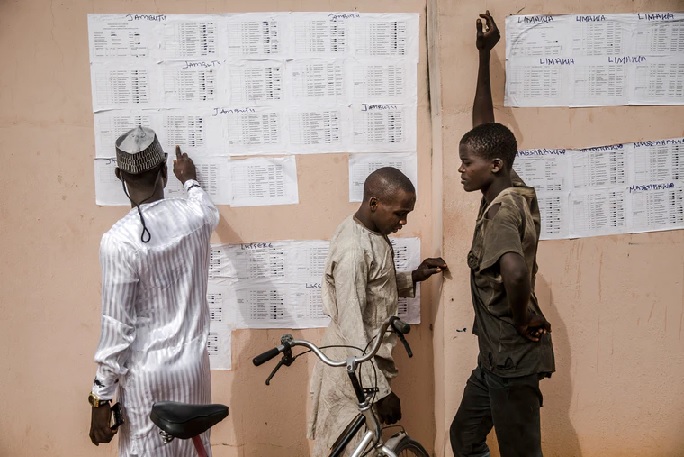 ArticleOctober 2, 2019The Travesty of Democracy through Sham Elections in a Rogue State: A Ride towards Anomie
ArticleOctober 2, 2019The Travesty of Democracy through Sham Elections in a Rogue State: A Ride towards Anomie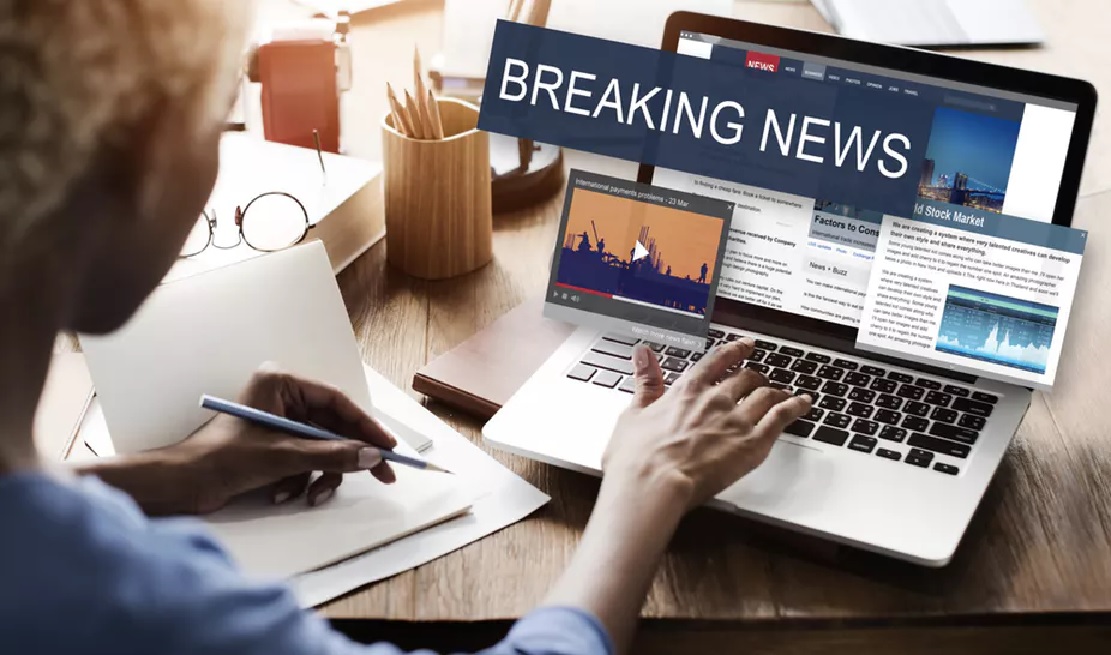 ArticleAugust 7, 2019The Press Cannot Be The Watchdog Of Society Without Vibrant Investigative Journalism
ArticleAugust 7, 2019The Press Cannot Be The Watchdog Of Society Without Vibrant Investigative Journalism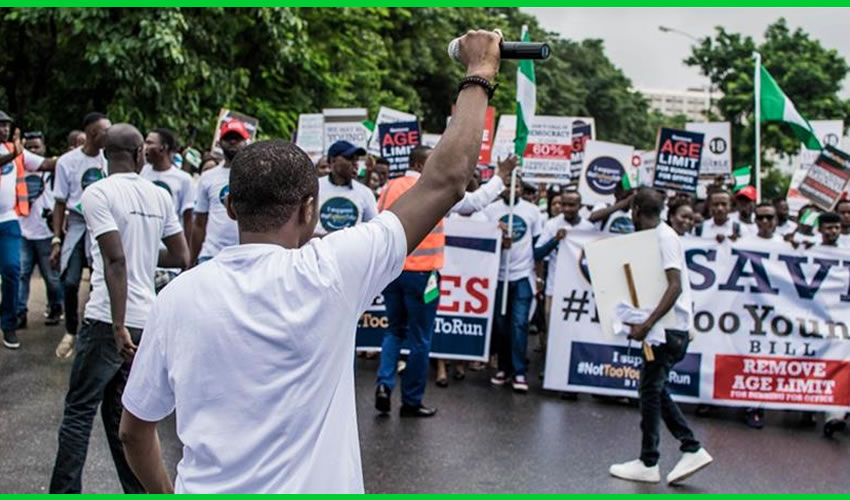 ArticleApril 16, 2019The Nigerian Youths and The Challenges Of Generation Gap; A Call To Action
ArticleApril 16, 2019The Nigerian Youths and The Challenges Of Generation Gap; A Call To Action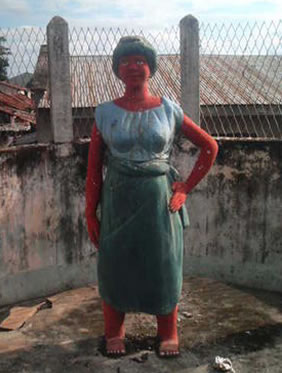 OpinionApril 16, 2019The Making of Heroes, Saints and Martyres; The Point of Departure in Deconstructing the Inikpi Legend of Igala Land
OpinionApril 16, 2019The Making of Heroes, Saints and Martyres; The Point of Departure in Deconstructing the Inikpi Legend of Igala Land
Article
Latest Report Reveals Oppo Smartphone Democratising Access To Professional-Grade Photography

By Abdulrahman Obaje
Improvements related to camera have been a major factor driving smartphone evolution over the past decade and the telephoto lens technology is among the important factors that determines how far the camera system can go, hence an indication of a larger trend in consumer behaviour, showing a preference for smartphones with enhanced photographic capabilities. adsbygoogle || []).push({}); adsbygoogle || []).push({}); January 2024 report of a market research firm, Counterpoint Research shows that the penetration rate has increased over the years to more than 19 per cent in H1 2023, nearly 3 per cent higher than it was in H1 2022.
So, what separates you from becoming a professional photographer this days is insignificant compare to the old ways of photography. It is just a thin line with the advent and rise in popularity of telephoto lenses in smartphones. This is because the growing trend in consumers’ desire for telephoto photography, something that can only be found exclusively in professional cameras; telephoto lenses integration in smartphones is now the main stay in the industry, a trend that industry player said is just the beginning of a larger trend.
Reports by Counterpoint had shed more light on the evolving landscape of smartphone photography. According to Counterpoint Research’s most recent report, more than 200 million telephoto lens-equipped smartphones were sold globally in 2022, with that figure expected to rise even further by 2024.
The telephoto lens feature was initially available exclusively on exceptional smartphones. However, the study has also found that mass-market adoption of telephoto lens is increasing, particularly among sub-$400 segments. The increasing popularity of telephoto lenses in affordable smartphones mirrors consumers’ inclination for advanced features without the accompanying high cost. In acknowledgment of this demand, smartphone manufacturers have promptly responded by enhancing their mid-tier line-ups with telephoto capabilities, enabling a broader audience to partake in upgraded photography experiences that were traditionally exclusive to high-end models.
Users can capture images that stand out for their precision and elegance. Apart from its ability to be able to capture a distant landscape, telephoto lens also stands out in shooting portrait as it can compress the subject and background, creating dramatic bokeh effect. The 50mm or 85mm equivalent focal length provides a field of view similar to human eyes with minimal distortions.
The report also revealed that these lenses are becoming increasingly integrated into smartphones around the globe. The ability to zoom without sacrificing image quality, combined with the unique visual effects a telephoto lens can produce, has made it a popular choice among smartphone users. The proportion of smartphones equipped with a telephoto camera has increased both internationally and in China, reaching 19.3% and 24.4%, respectively, demonstrating the importance of telephoto lenses in today’s mobile photography environment.
The report further revealed that the newly launched OPPO’s Reno11 series, positioned as “The Portrait Expert”, has been instrumental in bringing high-end telephoto lens features to more affordable smartphone models with the innovative “Telephoto Portrait” feature saying that OPPO has been instrumental in making high-quality mobile photography accessible to a greater majority of the masses.
“This strategic move by OPPO has not only democratized access to professional-grade photography features but also underscored the brand’s position as a leader in mobile photography innovation. ”, it said
The Reno11 series boasts features such as a 32MP 2x optical zoom camera powered by Sony IMX709 flagship sensor, enabling users to capture sharp, detailed images from a distance. The series also integrates advanced AI algorithms to enhance image quality, especially in portrait photography, providing users with the tools to capture life’s moments with unparalleled clarity and creativity.
The report thereby anticipates a positive outlook for telephoto lenses, affirming their pivotal contribution to the progression of mobile photography.
The integration of telephoto lenses is just the beginning of a larger trend. The future of mobile photography is expected to see upward progression, with telephoto lenses playing a significant role in how consumers capture and engage with the world around them. This trend is poised to redefine the standards of mobile photography, pushing the boundaries of what smartphones can achieve.
Abdulrahman Obaje is a Journalist, Mathematician and Computer Scientist based in Abuja, Nigeria.
Author Profile
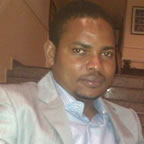
- Prince Abdulrahman Obaje is a Media, Information and Computer Technology Consultant. A quintessential Journalist, online marketer, social media strategist, Mathematician and Computer Scientist is based in Abuja, Nigeria. He is the Founder and the Publisher of The Informavores!. You can reach me on +234 805 939 5252 or send i-witness report directly to me on news@informavores.com.ng.
Latest entries
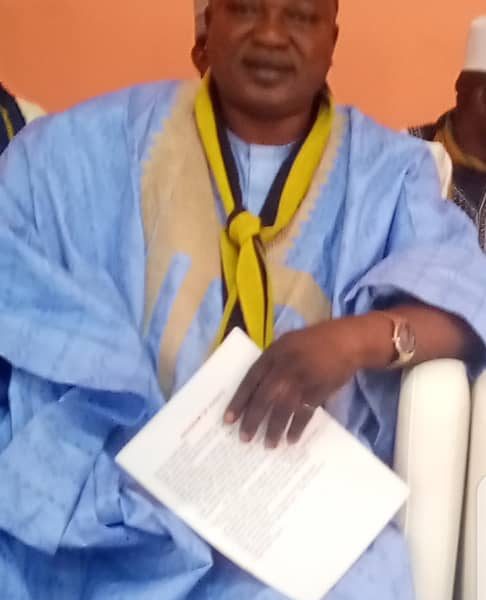 NewsApril 11, 2024Eid-El-Fitr: ICDA North Central Coordinator Urges Muslim Faithfuls To Abide By Ramadan Lessons
NewsApril 11, 2024Eid-El-Fitr: ICDA North Central Coordinator Urges Muslim Faithfuls To Abide By Ramadan Lessons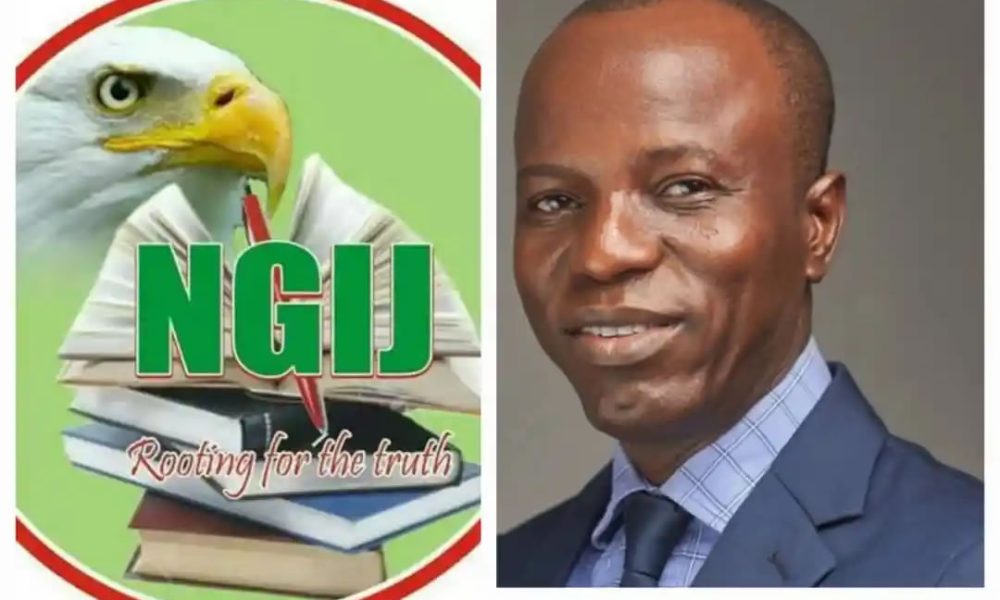 NewsMarch 20, 2024Investigative Journalists Group, NGIJ Hails Aderinokun on Appointment as Head of Media at Access Corp
NewsMarch 20, 2024Investigative Journalists Group, NGIJ Hails Aderinokun on Appointment as Head of Media at Access Corp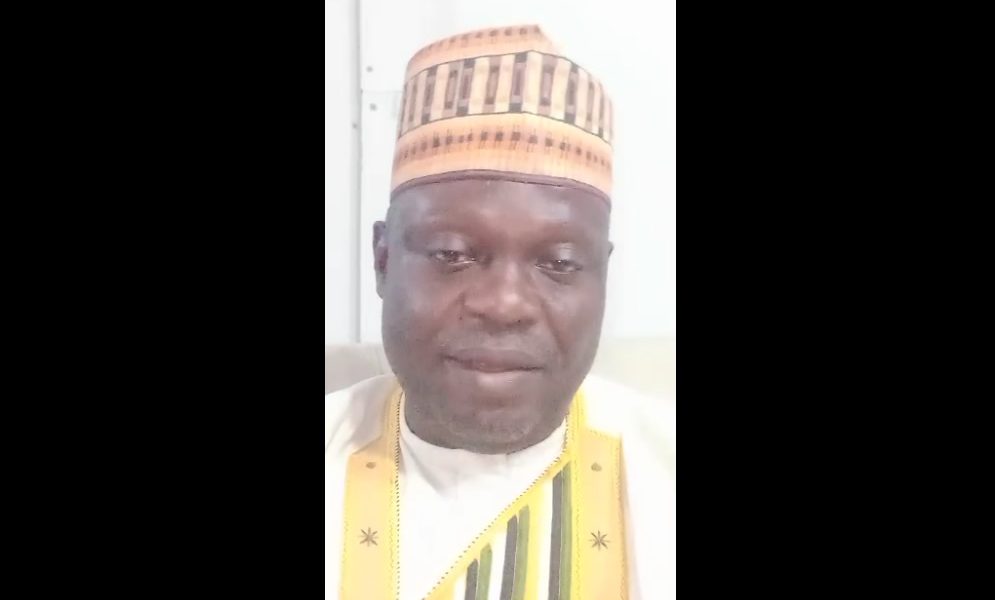 NewsMarch 4, 2024ICDA Chairman, Abubakar Sadiq Debunks Rumours of Unpopular Movement, Calls for Prayers
NewsMarch 4, 2024ICDA Chairman, Abubakar Sadiq Debunks Rumours of Unpopular Movement, Calls for Prayers NewsFebruary 23, 2024NGIJ’s Call to President Tinubu: Address Economic and Security Concerns Before Nigerians Take to the Streets
NewsFebruary 23, 2024NGIJ’s Call to President Tinubu: Address Economic and Security Concerns Before Nigerians Take to the Streets
Article
Why We Must Not Lose Guard About The Potential Risks Of AI – Part 1

By Abdulrahman Obaje
The most globally talked about scientific discipline at present is AI, short form of Artificial Intelligence, garnering attentions from main stream media organisations such as CNN, BBC, Forbes, New York Times, Daily Trust newspaper and the kinds of them. adsbygoogle || []).push({}); adsbygoogle || []).push({}); Unfortunately this technology also poses the most threats to society and humanity at present.
AI is a scenario whereby a piece of an electronic device or software behaves as though it is digital human assistant. Some can make and take decisions that ordinarily may take time for human being to accomplish. AI-based device may be trained to even perform responsibilities that usually requires human intelligence to accomplish. Such tasks include solving complex mathematical problem, complex medical diagnosis, language translation, etc.
Example include Language translators, Facial recognition capabilities on mobile phones and other devices, Facebook’s language translation feature, Google Assistant on Android, Siri on iPhones, friend suggestions on Facebook to mention but few. An AI-based system can actually act like a smart helpful digital friend.
AI serves as the foundation for transformative technologies like the much talked about ChatGPT with more than 18 million active users daily. Now, the GPTs store has been launched for business. Also, AI non-invasive device to read what a human is thinking in his mind, convert it to text and display the text on a screen. The research that has been conducted and pilot tested in the University of Sydney has a multifaceted benefit to the human. Anyone with speech impairment can use the device to communicate his or her thoughts and wants with people without talking.
As modern Artificial Intelligent-based systems are now being trained to learn from past experience; in the form of gathered information, making it able to adjust to new information that enable it to be independent in some areas to some extents, the voice of warning against the potential risks of AI is growing louder.
The tech community has long debated the threats posed by artificial intelligence. Automation of jobs, the spread of fake news and a dangerous arms race of AI-powered weaponry have been mentioned as some of the biggest threats posed by AI.
There is also growing concerns that these things could get more intelligent than the humans and that they could one day decide to take over, and that there is why we need to worry about how we prevent that from happening.
A Computer Scientist, Geofrey Hinton also dubbed as the Godfather of Artificial Intelligence, a name he got from his foundational work on machine learning and neural network algorithm, in 2023 left his position at Google to talk about the risk of Artificial Intelligence, insinuating that a part of him even regrets his life’s work.
Hinton is not alone in this concerns. More than 20,000 tech leaders had in March 2023 persuaded in an open letter to put a pause on large AI experiments, citing that the technology can pose profound risk to society and humanity.
According to Wikipaedia, Pause Giant AI Experiments: An Open Letter is the title of a letter published by the Future of Life Institute in March 2023. The letter calls “all AI labs to immediately pause for at least 6 months the training of AI systems more powerful than GPT-4”, citing risks such as AI-generated propaganda, extreme automation of jobs, human obsolescence, and a society-wide loss of control. It received more than 20,000 signatures, including academic AI researchers and industry CEOs such as Yoshua Bengio, Stuart Russell, Elon Musk, Steve Wozniak and Yuval Noah Harari.
One of the risks posed by AI system is the lack of AI transparency and explainability. This is as AI and deep learning models can be difficult to understand, even for those that are working directly with the technology. This leads to a lack of transparency for why and how Artificial Intelligence comes to its conclusions. This conclusion cannot be trusted one hundred percent of times because of lack of explanation for what data AI algorithms use, or why AI may make biased or unsafe decisions. These concerns explain the rise to the use of explainable AI, but there’s still a long way before transparent AI systems can become common practice.
The second area of concern is job loss due to job automation. As AI-powered job automation is adopted in industries like marketing, manufacturing and healthcare. By 2030, tasks that account for up to 30 percent of hours currently being worked in the U.S. economy could be automated. According to McKinsey. Black and Hispanic employees especially is more vulnerable to the change while Goldman Sachs even states 300 million full-time jobs could be lost to AI automation.
“The reason we have a low unemployment rate, which doesn’t actually capture people that aren’t looking for work, is largely that lower-wage service sector jobs have been pretty robustly created by this economy,” futurist Martin Ford told Built In. With AI on the rise, though, “I don’t think that’s going to continue.”
As AI robots become smarter and more dexterous, the same tasks will require fewer humans. And while AI is estimated to create 97 million new jobs by 2025, many employees won’t have the skills needed for these technical roles and could get left behind if companies don’t upskill their workforces.
The third area of risks poses by AI is Social manipulation. This fear has become a reality as politicians rely on platforms to promote their viewpoints. For example Ferdinand Marcos, Jr., wielded a TikTok troll army to capture the votes of younger Filipinos during the Philippines’ 2022 election.
TikTok, which is one example of a social media platform that relies on AI algorithms, fills a user’s feed with content related to previous media they’ve viewed on the platform. Criticism of the app targets this process and the algorithm’s failure to filter out harmful and inaccurate content, raising concerns over TikTok’s ability to protect its users from misleading information.
Online media and news have become even murkier in the wake of AI-generated content such as images and videos, AI voice changers as well as deepfakes infiltrating political and social spheres. These technologies make it easy to create realistic photos, videos, audio clips or replace the image of one figure with another in an existing picture or video. As a result, bad actors have another avenue for sharing misinformation and war propaganda, creating a nightmare scenario where it can be nearly impossible to distinguish between creditable and faulty news.
“No one knows what’s real and what’s not,” Ford said. “So it really leads to a situation where you literally cannot believe your own eyes and ears; you can’t rely on what, historically, we’ve considered to be the best possible evidence… That’s going to be a huge issue.”
Abdulrahman Obaje is a Journalist, Mathematician and Computer Scientist based in Abuja, Nigeria.
Author Profile

- Prince Abdulrahman Obaje is a Media, Information and Computer Technology Consultant. A quintessential Journalist, online marketer, social media strategist, Mathematician and Computer Scientist is based in Abuja, Nigeria. He is the Founder and the Publisher of The Informavores!. You can reach me on +234 805 939 5252 or send i-witness report directly to me on news@informavores.com.ng.
Latest entries
 NewsApril 11, 2024Eid-El-Fitr: ICDA North Central Coordinator Urges Muslim Faithfuls To Abide By Ramadan Lessons
NewsApril 11, 2024Eid-El-Fitr: ICDA North Central Coordinator Urges Muslim Faithfuls To Abide By Ramadan Lessons NewsMarch 20, 2024Investigative Journalists Group, NGIJ Hails Aderinokun on Appointment as Head of Media at Access Corp
NewsMarch 20, 2024Investigative Journalists Group, NGIJ Hails Aderinokun on Appointment as Head of Media at Access Corp NewsMarch 4, 2024ICDA Chairman, Abubakar Sadiq Debunks Rumours of Unpopular Movement, Calls for Prayers
NewsMarch 4, 2024ICDA Chairman, Abubakar Sadiq Debunks Rumours of Unpopular Movement, Calls for Prayers NewsFebruary 23, 2024NGIJ’s Call to President Tinubu: Address Economic and Security Concerns Before Nigerians Take to the Streets
NewsFebruary 23, 2024NGIJ’s Call to President Tinubu: Address Economic and Security Concerns Before Nigerians Take to the Streets
Article
Kwara’s Growing National Profile
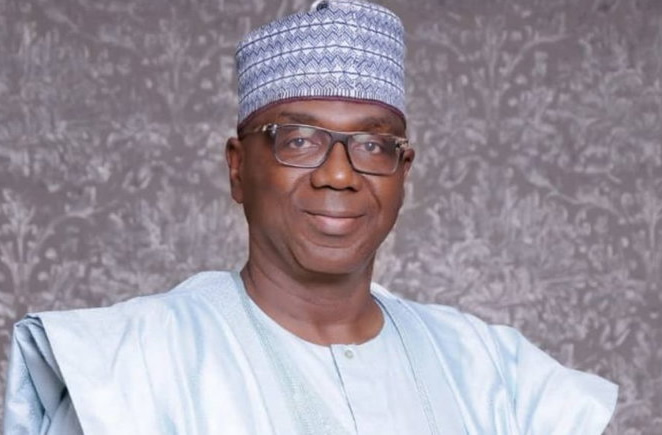
By Abdulrazaq Hamzat
Before transition into a people’s government, through the otoge political revolution in 2019, the only thing most people outside the state of harmony knows about the state is its political godfatherism. adsbygoogle || []). push({});
Fortunately for Kwara, things are changing and the state’s national profile is taking a new look.
In this past months, I have been traveling around the country, from Kogi, to Lagos, to Abuja.
As you all know, we have been accostom to the popular saying that the world is a global village, but nothing reinforces such claim and brought it close to home like the experiences I had traveling around the country lately.
It all started in Lagos, while in midsts of Nigerians from different parts of the country. A conversation about the current state of affairs in the nation began and soon after, the conversation was narrowed down to the issue of lawmakers in the country.
To my greatest surprise, one of the individuals in the gathering made reference to the Legislative Watch Assessment Report, produced by Grand Plan in partnership with Kwara Must Change, which was piloted here in Kwara State.
When I first heard reference being made to this report, it was kind of surprising because the person making this reference is from Kano and I was surprised that a project done in Kwara State could have such impression on somebody from far away Kano. So, while asking questions to probe what this individual really know about Legislative Watch, the other individual who came from Nasarawa State jumped in and also spoke glowingly about Legislative Watch and the impact it made in their state.
According to him, the project was trending in Nasarawa for weeks.
When I said it’s just a Kwara report, both individuals strongly disagreed. That project is beyond Kwara, it is a report like no other and it’s impact was felt all across the federation. They concluded.
While these conversation were taking place, they never knew I had anything to do with the report. So, it was a shocking moment for them, when I said that we did the project and that I was the lead researcher. They went berserk in excitement, looking at me strangely and affectionately and I began to feel excitedly scared for myself.
It was at this point that I thought of bringing up conversation about the national perspective of Nigerians about Kwara State and the current administration in the state.
Even when you know the truth, sometimes, it is always good to aggregate opinion of independent third parties that are not connected to the players or affected by their prejudice.
Fortunately, all of the people in this gathering have nothing but praise for the Abdulrahman Abdulrazaq led administration in Kwara State. Some of them even compared his activities to that of their own state and concluded that Kwara State is at the forefront in governance.
This encounter spurred my interest in wanting to have a real feedback about national perspective of Nigerians on Kwara State.
So, I decided to make a delibrate random survey anywhere I go about Kwara State.
In Lagos State, I asked 15 people about their perspective of the Abdulrahman Abdulrazaq led administration in Kwara State.
While 3 of them do not have any real opinion because of limited information, 10 of them spoke about the state in glowing terms. The remaining 2 were critical of the state due to the ongoing dispute between the ruling party.
Although, out of the two individuals critical of Kwara State because of the ongoing dispute between Governor Abdulrahman Abdulrazaq and Minister of Information, Alhaji Lai Muhammed, one praised the governor for taming the minister, noting that he belongs to the same constituency with the minister in Lagos and they have also been looking for ways to deal with him.
In Kogi State, it was positive feedback all through for Kwara State, amongst the 5 individuals sampled.
Furthermore, at the federal capital territory in Abuja, Kwara State is seen as one of the top 3 performing state in the country.
Amongst the 20 individuals sampled, only 3 were critical of the government in relation to it’s ongoing dispute with information minister and the opposition leader, Dr. Bukola Saraki.
While 17 individuals spoke positively about the government and its performance, 3 individuals think the situation with the opposition leader, Dr Bukola Saraki could have been handled with more diplomacy. They also think the dispute with Alhaji Lai Muhammed was unnecessary. However, when they were provided with context to both issues, they seems to understand it better.
In all, Kwara State is now a state of interest for many across the federation and whatever happens here makes alot of impact in other states.
The administration of Mallam Abdulrahman Abdulrazaq is also seen as a leading light in terms of governance and we must encourage the government to continue to improve on its chosen path until the state get to its promise land.
While it is always good to criticise government projects and policies, such criticism should seek to add value to governance, not diminish it. Valid criticism doesn’t hurt anyone, it strengthen us all and make good governance a reality, not a dream.
Abdulrazaq Hamzat writes from Abuja, Nigeri
Author Profile
Latest entries
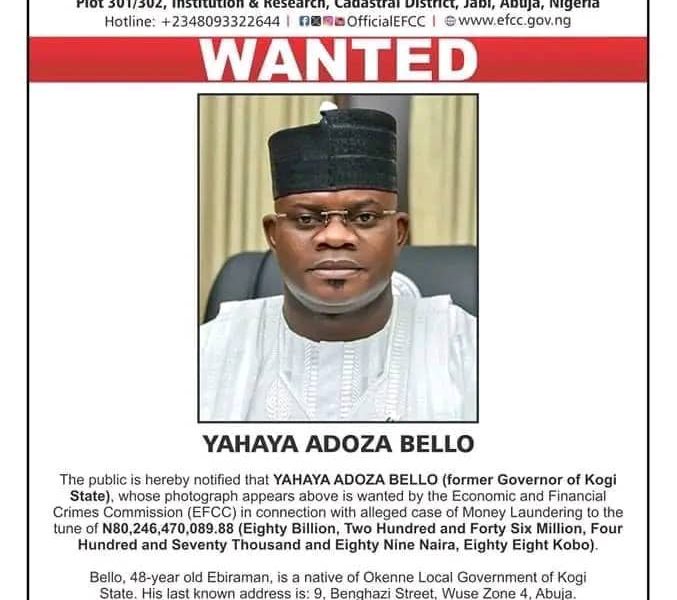 NewsApril 18, 2024Alleged N80.2billion Money Laundering: EFCC Declares Immediate Kogi Ex-Governor Yahaya Bello Wanted
NewsApril 18, 2024Alleged N80.2billion Money Laundering: EFCC Declares Immediate Kogi Ex-Governor Yahaya Bello Wanted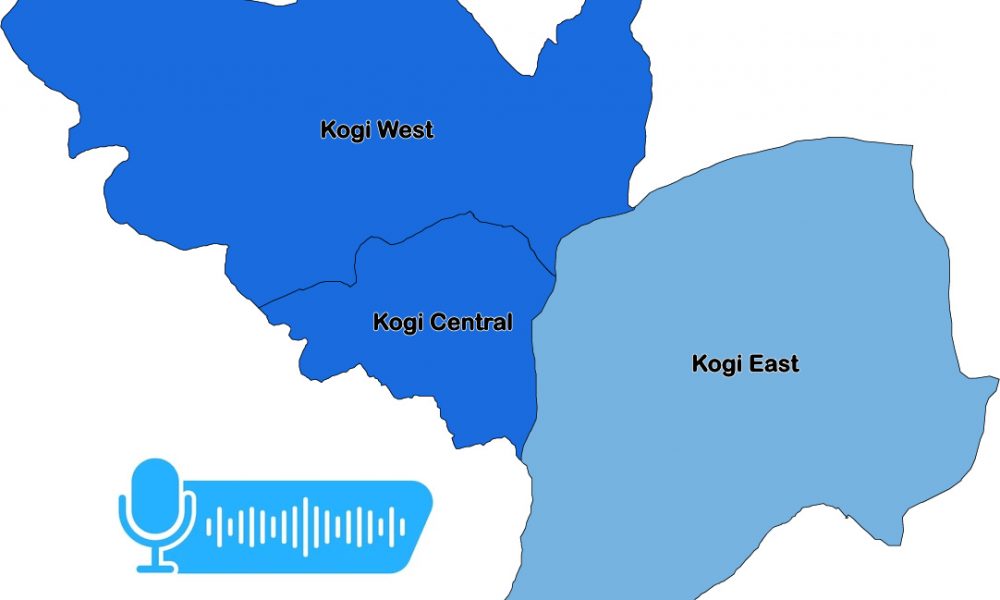 NewsNovember 6, 2023Another Massive Plan By APC To Rig Kogi Election Uncovered!
NewsNovember 6, 2023Another Massive Plan By APC To Rig Kogi Election Uncovered!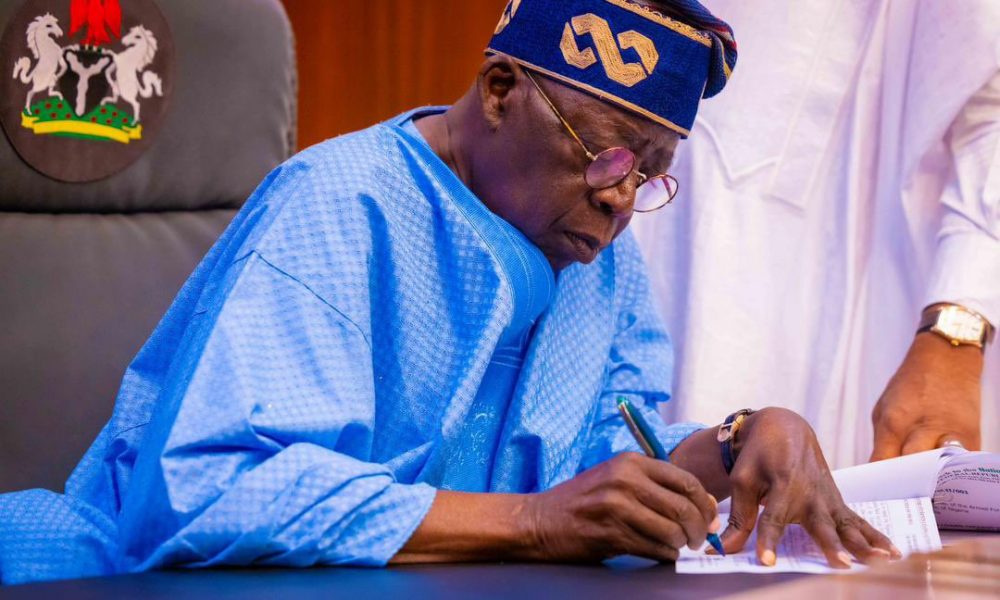 Food and AgricultureAugust 1, 2023Food Security: FG Started The Distribution of Subsidised Farm Inputs to Small Holder Farmers
Food and AgricultureAugust 1, 2023Food Security: FG Started The Distribution of Subsidised Farm Inputs to Small Holder Farmers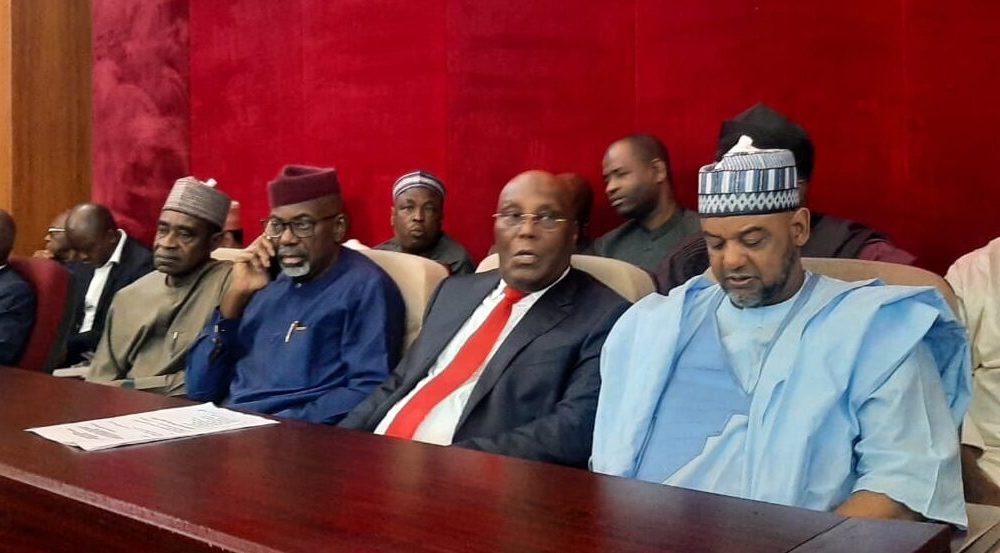 PoliticsAugust 1, 2023PEPC: PDP Atiku Appears As Parties Set To Adopt Written Addresses
PoliticsAugust 1, 2023PEPC: PDP Atiku Appears As Parties Set To Adopt Written Addresses
